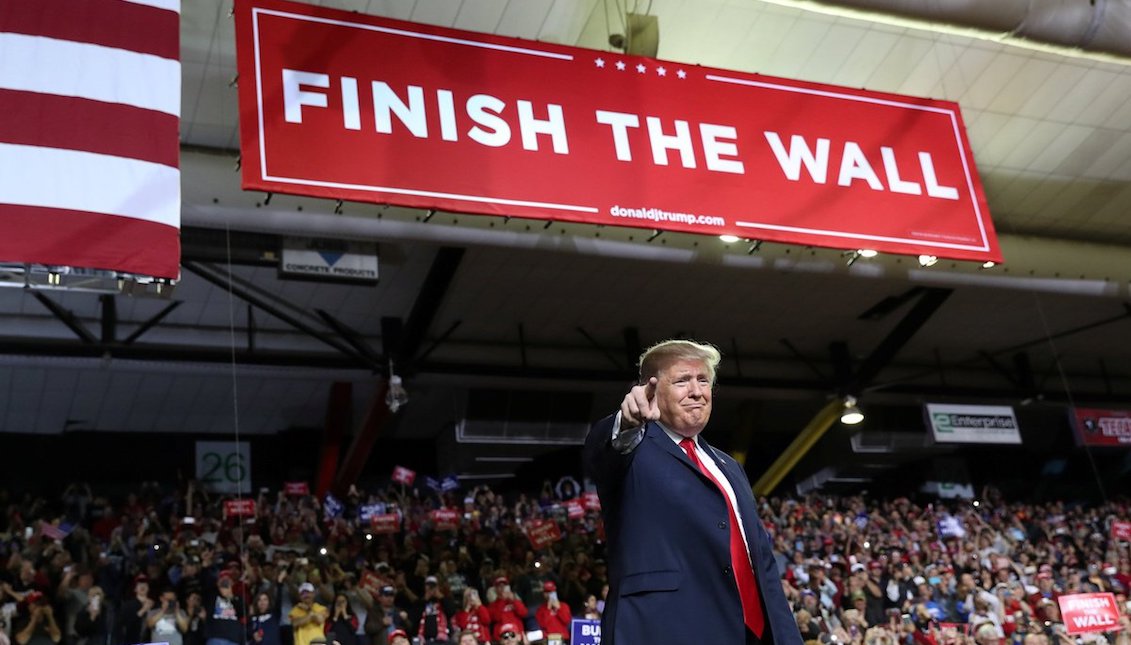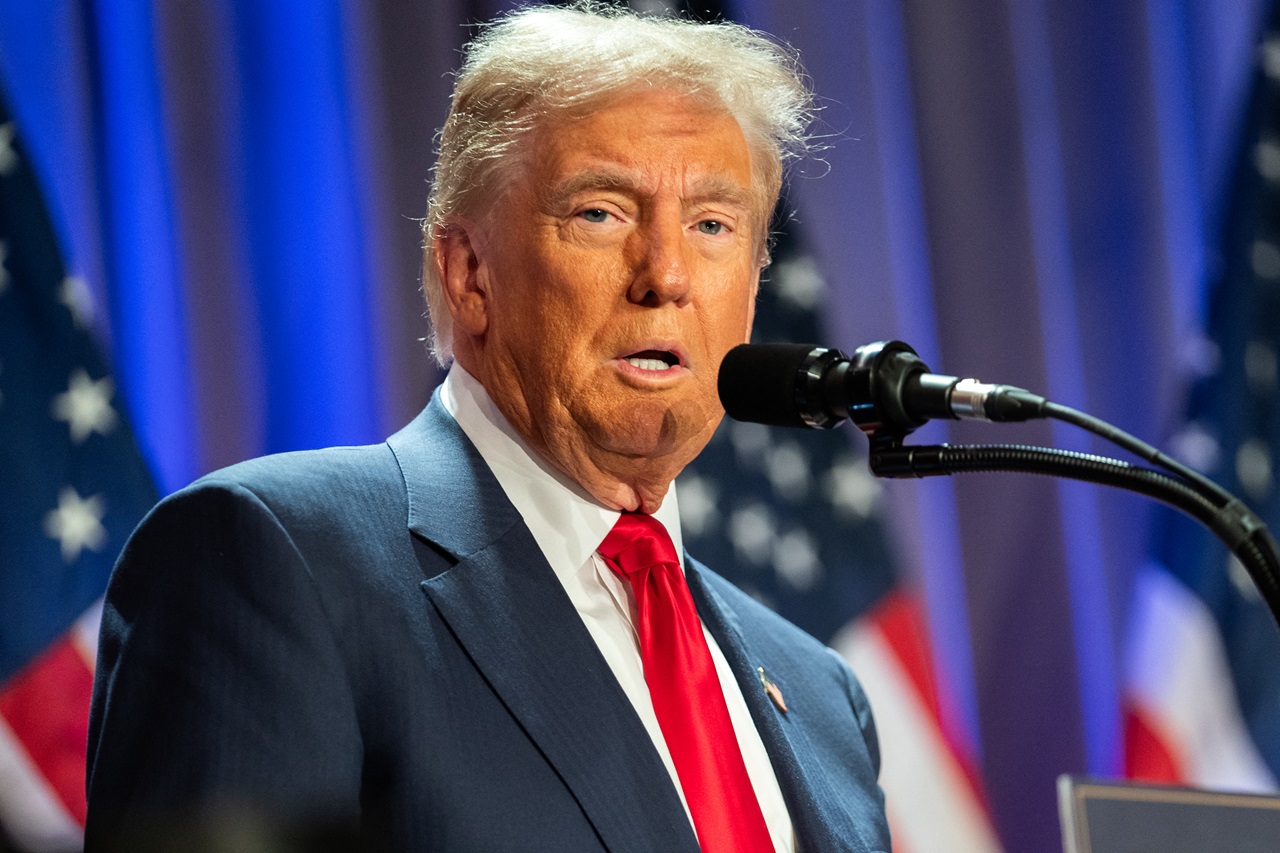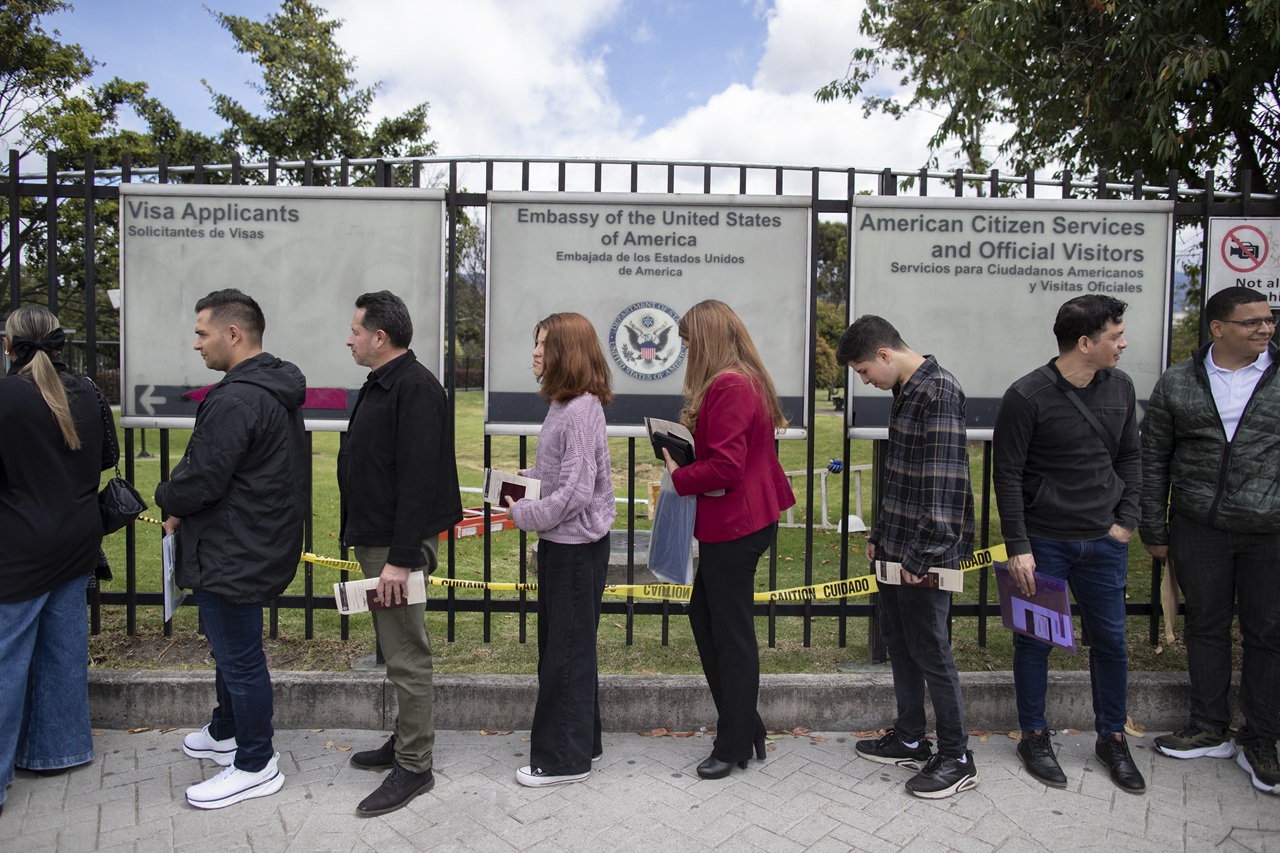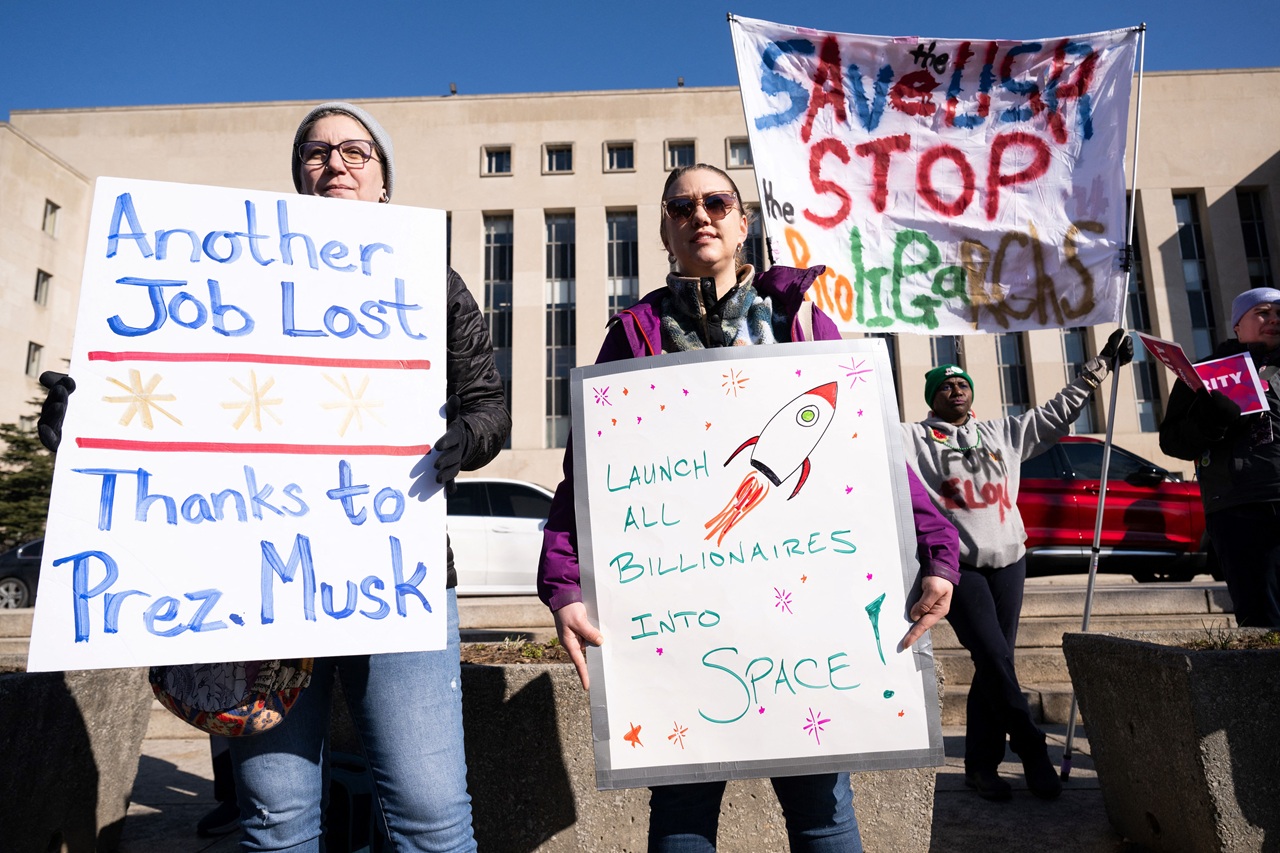
Border Crisis? What Border Crisis?
Statements by officials in the El Paso area that contradict President Trump's alleged border crisis are the latest demonstration of his administration's…
Just days before the deadline for a government funding agreement, President Donald Trump has launched his campaign for re-election using his favorite political weapon: the border.
While the president announced his intention to re-elect himself almost immediately after setting foot in the White House, Monday night in El Paso his 2020 campaign's first official rally, as he used the location to symbolize his alleged struggle for "border security."
With a new banner at his back that read "finish the wall," - directly contradicting the tantrums he has thrown to push for funds to actually build it - the president ignored efforts by Congress to reach an agreement, and insisted that "we will build it anyway.”
Meanwhile, on the streets of the same city, former Texas representative Beto O'Rourke held his own rally in protest of the president's appearance in El Paso.
Though the former candidate for Senate didn't mention anything about a potential presidential campaign, his speech made it possible to determine to what extent the people who live along the border actually experience the doomsday "crisis" that Trump likes to invoke.
According to Politico, O'Rourke told the media that he did not interpret the president's visit as a "personal challenge", but rather as "an effort to use this community as a prop to make his case for the border wall."
O'Rourke echoed the statements made earlier in the day by officials from the area, who rejected the president's comments regarding the "increased security" in El Paso thanks to a "border fence" that was built 10 years ago.
At a press conference, the city's new representative to Congress, Veronica Escobar, El Paso County Judge Ricardo Samaniego, District Attorney Jaime Esparza, and Commissioner Carlos Leon said Trump's comments "threatened to damage the reputation of the city."
"We have worked very hard to have the image of a solid community," Samaniego said, according to a Washington Post report. "Every one of us is touched with the falsehoods that are taking place."
RELATED CONTENT
During his State of the Union address last week, Trump said a fence built in the border area of El Paso between 2008 and 2010 had "reduced violent crime," transforming the city into "one of the safest in our country.”
Again, his version of history turned out to be false.
According to El Paso Times, the city had witnessed a significant decrease in the number of violent crimes beginning in 1999. However, this increased slightly just after the construction of the fence.
For their part, residents of the area have expressed their dissatisfaction with the president's statements, saying that "they have gone too far, making their home sound like a war zone and offending both them and the people from Mexico", reported ABC News.
"The demand for more and bigger walls has become 'the supreme symbol of racism,'" Fernando García, executive director of the Border Network for Human Rights in El Paso, told the media.
Statements made by California Governor Gavin Newsom on Monday further reinforced this rejection of the president's campaign rally, as he announced that he would withdraw the National Guard troops from the border "as a symbol of a more activist stance against the president's policies."
"This crisis on the border is a manufactured crisis," Newsom told the media. "We are not interested in participating in this political theater."
The new government decided to withdraw "260 of the 360 state troops on the border," CNBC reported, and the remaining 100 troops "will conduct operations primarily around the ports of entry, supporting federal efforts to combat drug and gun trafficking.”











LEAVE A COMMENT: